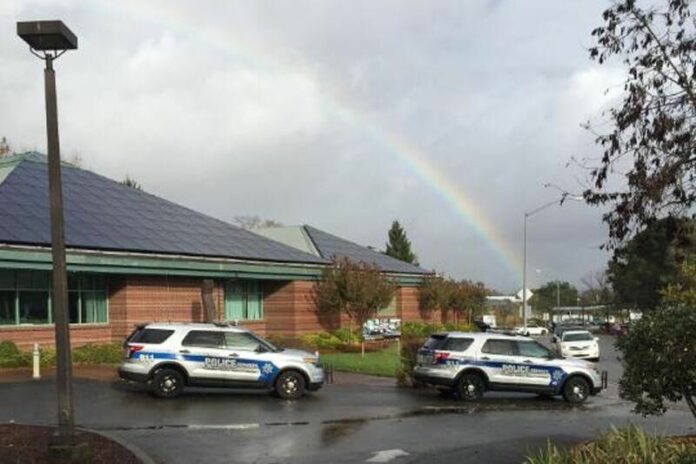A dozen catalytic converter thefts have targeted mostly Toyota Priuses throughout Sebastopol since June.
The Sebastopol Police Department does not have any official suspects or people of interest regarding 12 catalytic converters stolen between June 24 and Dec. 5, according to Lieutenant Ron Nelson.
He said city police are analyzing surveillance videos from residences in the targeted areas, hoping to enhance the quality for a better view of suspect vehicles.
“I can tell you that in a couple it appeared it was a dark-colored vehicle, (it was) difficult to even tell if it was a sedan or a truck,” Nelson said. He continued to say the car appeared to be a sedan, but officers could not determine the make or model.
Nelson said Sebastopol police believe this vehicle was involved in the thefts because it was the only vehicle passing through the neighborhood near the site of the theft within an hour’s time range of when they estimate the event occurred on those videos.
The lieutenant said the heists generally take place in the early morning hours, many between 3 a.m. and 4 a.m.
“They seem to come in waves,” he said, with six converters extracted between June 24 and July 31, one on Sept. 7, followed by a series of five thefts between Nov. 23 and Dec. 5. Nelson said at least three quarters of the thefts hit Toyota Priuses and the locations are fairly random.
“But I do know the vehicles have been parked on the north end of the city, on the south end of the city, on the west side and on the east side,” he said.
Two catalytic converters were stolen on Redwood Avenue four days apart and High Street was hit twice on the same night, but those responsible haven’t revisited any other streets so far, Nelson said.
According to the lieutenant, these thefts appear to be on the rise throughout the Bay Area, as Marin and Alameda counties experienced similar catalytic converter raids.
Cases where other jurisdictions have apprehended two or three people at a time for the crimes led the Sebastopol Police Department to suspect some individuals may be responsible, but not large groups, he said.
“And what it appears is they just randomly scour neighborhoods looking particularly for Toyota Priuses to target, so wherever they find them, that’s where they strike.”
Nelson said one of the biggest things Sebastopol residents can probably do to protect their cars from converter theft is to park in the driveway if they have one and back up as close as possible to their garage door to make it hard for individuals to access the rear of the vehicle.
He said car alarms are another deterrent, even though they’re so common people often don’t think any cars are actually at risk when the alarms go off. Lastly, Nelson recommends people be aware of what’s going on in their neighborhood.
“Get to know your neighbors. If you have neighbors who actually own Toyota Priuses, they may not be aware they’re potential targets for these types of threats. Let your neighbors know,” he said.
Nelson said people who see someone actively breaking into a car to commit theft should call 911 for the quickest response. He said residents can call 707-829-4400 for non-emergencies, like if they see someone while if it is not an emergency and “if it’s just, ‘Hey, I see somebody in the neighborhood who seems a little suspicious,” they can call 707-829-4400 for the department’s dispatch.
Sebastopol police are examining how Priuses are configured to understand why people are targeting them, he said. Priuses have small engines and may have smaller exhaust pipes that can be severed easily so thieves can finish the job fast, according to Nelson.
He said there were also valuable metals inside the converters that can be recycled for cash, while others may resell the parts to people seeking to replace an old catalytic converter or a stolen one.
“To buy a new catalytic converter from a dealership, it can run several thousand dollars by the time they pay for the part and get the installation done,” he said. “So, there’s probably a secondary market where they’re trying to sell them to individuals who need a catalytic converter, probably because they, too, have been victimized.”
The lieutenant said the outbreak of catalytic converter thefts and generally any theft-related activity can be symptomatic of a struggling economy.
“When times get a little tougher, and we’re going through some difficult economic times with the novel coronavirus, there are people out of work,” he said. “There are people who are looking for ways to make money, and unfortunately, people who are inclined to engage in criminal activity — we see spikes during tougher economic times. I think that’s driving it, to an extent right now.”
Nelson said so far there’s no substantial evidence that indicates that the same individuals targeting vehicles in Petaluma last summer are behind the thefts in Sebastopol, but it remains a possibility. Still, he said different crews have been at work throughout the Bay Area.









